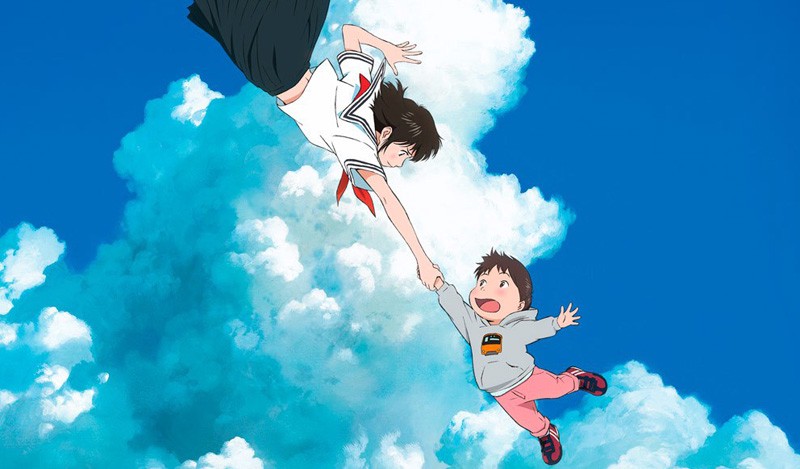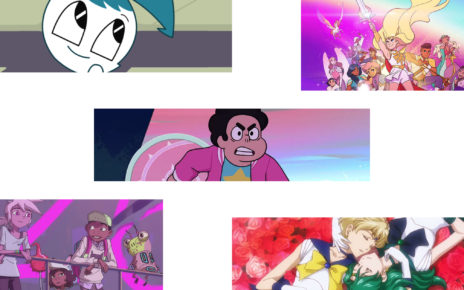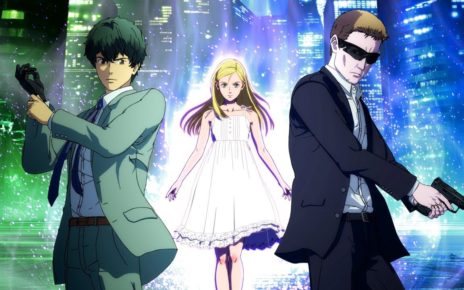In 2017, the first Animation Is Film festival was a surprise hit. Sponsored by Gkids (among others), the festival quietly crept onto the scene, even though it boasted Studio Ponoc’s Mary and the Witch’s Flower, the Angelina Jolie-produced The Breadwinner, and a behind-the-scenes look at Incredibles 2 almost a year prior to release. The festival served as a precursor to the animation races of the upcoming awards season (or two, as many of last year’s films are only now being released) and shed light upon aspiring filmmakers and studios. While many guests only attended one or two screenings (for me, it was Masaaki Yuasa’s The Night is Short, Walk on Girl), a potent energy flowed throughout the Chinese Theater in Hollywood, and everyone was eager to see how the festival would change and develop.
Its ample growth this year was no surprise. From exciting new releases to special anniversary screenings, the lineup was teeming with potential. On Friday, Oct. 19th, the festival began. Guests filed into the lobby of the Chinese Theater to line up for the first screening of the festival, Mamoru Hosoda’s Mirai. There were only three planned screenings on Friday evening: Mirai with subtitles, Mirai dubbed, and Nina Paley’s Seder-Masochism.
Both Mirai screenings sold out, so the lines were long, but that didn’t steal the spotlight from the red carpet in the lobby, where festival organizer Eric Beckman was discussing the excitement. Beckman called the growth from last year to this year “organic,” adding that building on last year’s positive reception was easy. Filmmakers talked about what it meant to be included in the festival, and while others dove more into their work. For example, Hosoda—whose work the festival screened as a retrospective—discussed the way he uses play in his films. In the internet age, he explained, children are learning and adapting to new games all the time. Because children have to teach others how to interact with the world, young growth is truly dynamic.
Other filmmakers shared this passion: Marc James Roels, director of the Belgian The Magnificent Cake, discussed his stop-motion puppet style of animating as empowering due to its limitations. Dennis Do, director of Funan, described how animation serves as the perfect medium to bring his mother’s stories and experiences during the Khmer Rouge to life. Nina Paley talked about how Seder-Masochism was born out of her Jewish experience (which was defined largely by celebrating Passover and not being Christian).
Before the first screening of Mirai, Beckman and Hosoda greeted the packed theater with a few words. During the Q&A that followed, the crowd rained appreciation on Hosoda. As the dub wasn’t completed yet, both screenings ended up being subtitled, and many people then went to see Seder-Masochism. At the end of the night, everyone geared up for what was sure to be a packed Saturday.
And packed it was. Some came early to see a behind-the-scenes look at the upcoming Ralph Breaks the Internet (which sold out). Others chose to partake in early films like children’s fable Pachamama and The Magnificent Cake. The first big divide came at 4:15 between Funan and Studio Ponoc’s collection of three short films entitled Modest Heroes. As the day continued, some partook in the Hosoda retrospective, which included The Girl who Leapt Through Time and Summer Wars. Others enjoyed exciting new films like Spain’s Bunuel and the Labyrinth of the Turtles, a somewhat experimental biopic about Luis Bunuel, and a drama about journalists in the Angolan Civil war called Another Day of Life. All day, festival attendees were also invited to enjoy virtual reality short film The Crow (featuring John Legend, Constance Wu, and Oprah Winfrey), which was a delight by all accounts.
While the press junket occurred in the Loew’s hotel on Sunday morning, the screenings didn’t stop for anyone. Two sold-out morning screenings started the day off strong: the anime adaptation of novel I Want to Eat Your Pancreas and a behind-the-scenes look at Spider-man: Into the Spider-verse. The rest of the day, much like the previous day, was filled with choices: Audiences could pick between Hosoda films (Wolf Children, The Boy and the Beast) or new films like Tito and the Birds, Penguin Highway, or Reuben Brandt Collector. There were also two separate screenings of different compilations of short films from the Annecy film festival. One of the big surprises of the day was a sold-out anniversary screening of Dreamwork’s The Prince of Egypt.
All in all, the festival was a massive success. A few days after its conclusion, the winners emerged: The audience award and grand prize both went to Funan, while the special jury award went to Bunuel and the Labyrinth of Turtles. Last year’s festival put the winners on the awards season map; this year will likely be no exception. While stressing the namesake of the festival, the Animation Is Film festival once again proved itself as a platform for aspiring filmmakers and films while still appreciating established studio classics.
Thanks for reading The Dot and Line, where we talk about animation of all kinds. Don’t forget to for this article and follow us on Twitter and Facebook.





